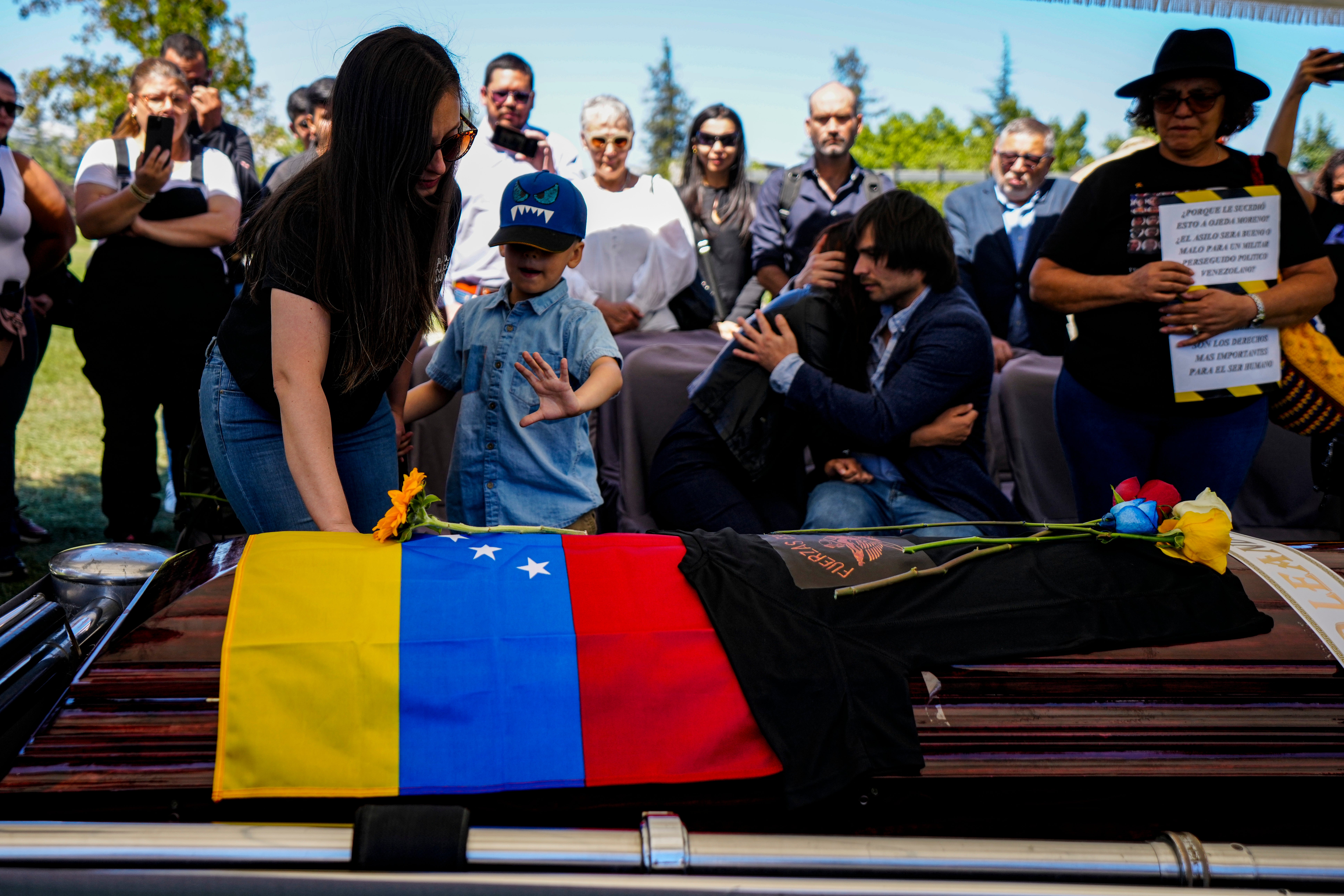Chile will ask Venezuela to extradite citizens suspected of killing an anti-Maduro dissident
Prosecutors in Chile have said they plan to formally request that Venezuela extradite two of its citizens to stand trial for charges related to the abduction and killing of a Venezuelan dissident in Chile earlier this year, a case that has strained relations between the South American nations

Prosecutors in Chile said Friday they plan to formally request that Venezuela extradite two of its citizens to stand trial for charges related to the abduction and killing of a Venezuelan dissident in Chile earlier this year, a case that has strained relations between the South American nations.
Prosecutors ruled that the slaying of the activist and former army lieutenant was plotted in Venezuela. If proven, the grisly killing on Chilean soil could signal a new front in the widespread repression by the government of President Nicolás Maduro against the opposition ahead of his re-election contest later this year.
Venezuela has denied involvement.
Chilean prosecutors on Friday publicly implicated Venezuela’s largest criminal organization, the Aragua Train, in the crime. Authorities also hinted that they believe the culprits in the killing of 32-year-old Ronald Ojeda — who had sought asylum in Chile after protesting Maduro’s administration — may have been working on behalf of the Venezuelan government.
Ojeda’s outspoken politics, prosecutors said, ruled out speculation the group killed him over his participation in illicit street gang activity. The Aragua Train never made a ransom demand. Ojeda was killed just hours after being kidnapped.
“We are talking about a victim who has participated in actions against the Venezuelan government,” said Héctor Barros, the prosecutor leading the case.
Further raising suspicions, Barros said, the disposal of Ojeda’s corpse was chillingly methodical — something unusual for the Aragua Train. On March 1, after 10 days of feverish searching, Chilean authorities found his body squeezed into a suitcase, buried a meter beneath a building in the hardscrabble suburbs of Santiago, sprinkled with white lime powder to hasten decomposition and covered with cement.
Chilean police detained a 17-year-old Venezuelan in the country illegally in relation to the case. Demanding that Venezuela cooperate in the investigation, the Chilean government promised to pursue the extradition of the two other suspects who had fled to Venezuela. Once Venezuela gets the request, the process would move to Venezuelan courts, which would determine whether the suspects could be extradited before the judiciary makes the final determination.
Yet Venezuela has thus far failed to cooperate with Chile's past extradition requests in other criminal cases.
“The eyes of the world will be watching how (Venezuela) acts," Interior Minister Carolina Tohá told reporters on Friday. “We are going to make sure of it.” She said Chile viewed the crime “with the utmost gravity.”
Ojeda, a former member Venezuela’s military, escaped Venezuelan detention in 2017 and sought refuge in Chile, which granted him asylum last year. From exile, he continued to voice opposition to Maduro on social media until his disappearance.
Surveillance camera footage from the early morning of Feb. 21, the date of Ojeda's abduction, shows three men dressed as Chilean police taking him from his apartment and bundling him into a vehicle.
The incident brought already tense relations between Chile and Venezuela to an inflection point.
Santiago recalled its ambassador in Caracas on Thursday over Ojeda’s kidnapping. Calls grew for the government to sever relations with Venezuela after its foreign minister, Yvan Gill, dismissed the Aragua Train prison gang and its reach across Latin America as a “fiction created by international media.”
The case comes at a sensitive time for Maduro, who is running for re-election in July. In recent months, his long-running campaign to crush dissent has drawn widespread criticism and strained efforts by the Biden administration to pave the way for free and fair elections in the country.